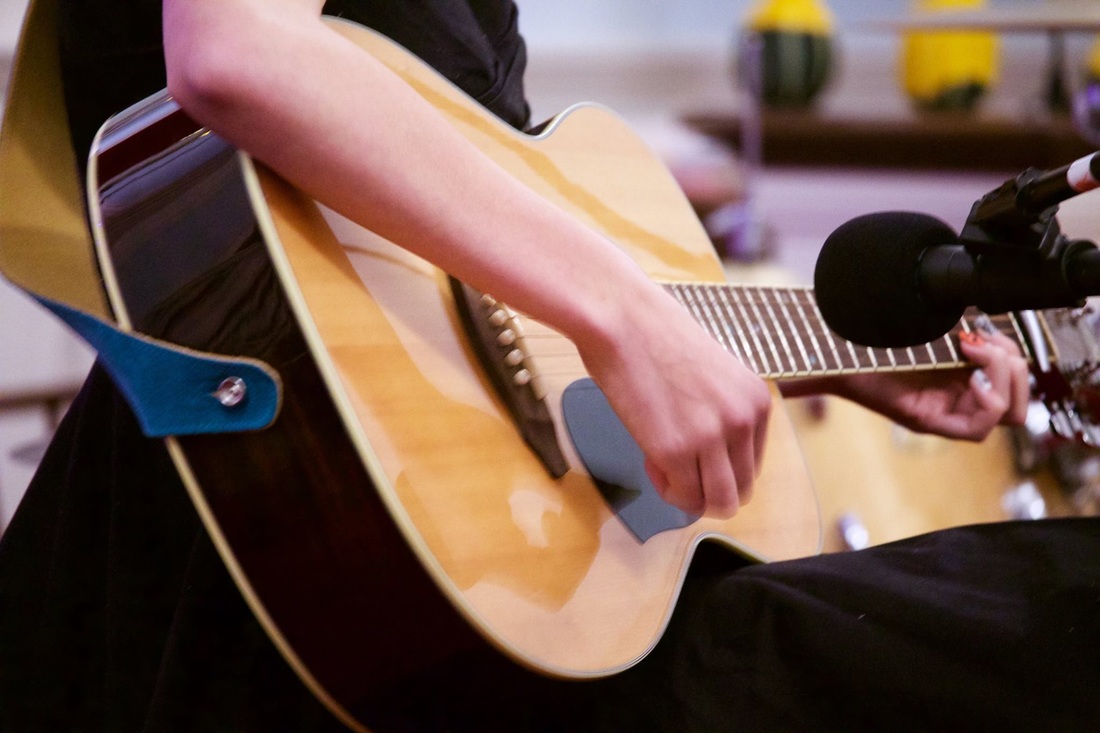|
Just in case you were interested in what, exactly, we played on Folk Sunday, I am including the insert where we explained a bit the songs we played. We recorded all the music and--eventually--some of these recordings will be used for my sabbatical "Burbania Folk" project, the outlines of which are described elsewhere on the blog. All the songs except "Freedom" currently fit the working parameters. Anyway, here they are in the order presented...
White House Blues (Traditional) First recorded by Charlie Poole in 1926, this classic song tells part of the story of the assassination of President William McKinley (by the anarchist Leon Czolgosz) in 1901. It lives on today thanks to its role interpreting one of the important events of the progressive era. In addition, it is fun to play and has become a bluegrass and old-time standard. As with many folk songs, there are more verses then there is time to sing them. One classic version reviews the assassination and its aftermath in epic detail. Today, however, we will be performing the shorter version similar to the one recorded by Poole. Keep Your Eyes on the Prize (Traditional) With deep roots in the African American folk tradition, this song became an essential part of the soundtrack of the civil rights movement. It grew out of a number of older songs including the church hymn "Gospel Plow". As with many civil rights songs it has a life in the church that continues to this day. Part of its long life stems from its ability to speak truth in both sacred and secular contexts. Fields of Athenry (Pete St. John) At one time this song was considered to be quite old. However, while it addresses the plight of the Irish during the great famine (1845 to 1850), it turns out to have been written in the 1970s! It's simple and accessible tune no doubt led people to ascribe a greater age to the work. It is a popular song in Ireland where it is sung by fans at rugby games and other sporting events. Here in New England it is best known in its folk-punk incarnation as performed by The Dropkick Murphys. Even though it is a relatively new song, we are singing it anyway as it fits today's theme of music commenting on society. Also, it reminds us that folk music in its purest form (that is, songs that transcend the performance of their originator and become the property of all the people who who perform, modify, and interpret in their own way) is still being made. Freedom (Kenneth Pattengale and Joey Ryan) This is the newest song in our service today. Written for their 2015 album Monterey, the Milk Carton Kids (Pattengale and Ryan) examine the current questions around the concept of freedom in our country. This is a particularly timely song in light of modern fears around immigration, terrorism, and gun violence. Whether it becomes a classic or not remains to be seen. However, it is a fine example of political and social commentary within the singer-songwriter tradition that began during the mid 20th Century. This Land is Your Land (Woody Guthrie) This song needs little introduction. The words were written by Woody Guthrie in 1940 as a direct response to "God Bless America" the Kate Smith version of which was played regularly on the radio as the nation prepared to enter the Second World War. Guthrie wanted a song that reflected the diversity and potential on the country while also underlining some of its more pressing problems. The tune was modified from an old Baptist hymn. Of course, the McCarthy era was a difficult time for progressives, who found much of their work repressed. Thanks to the upbeat and easy tune, this deeply political song survived in the elementary schools (with the more political versus removed) and remains one of the most popular songs in the United States. Our version today may sound somewhat unfamiliar as we are relying heavily on those more political verses that have been avoided at times out of fear, censorship, or politeness. If I Had a Hammer (Hammer Song) (Pete Seeger and Lee Hayes) Written for the Weavers in 1949, this song has been an integral part of the American progressive landscape. Interestingly, most people probably remember learning it in school or in summer camp. This is particularly surprising when we consider that its first live performance was at a testimonial dinner for leaders of the Communist Party of the United States! Many of the more political folk songs in history have depended on their popularity with children for their survival.
0 Comments
Leave a Reply. |
Adam Tierney-EliotThis is my old weblog of many years. I will probably post here from time to time is there is a subject that does not fit WWG. However WWG is the more active page at this point. Archives
April 2022
Categories
All
|

 RSS Feed
RSS Feed